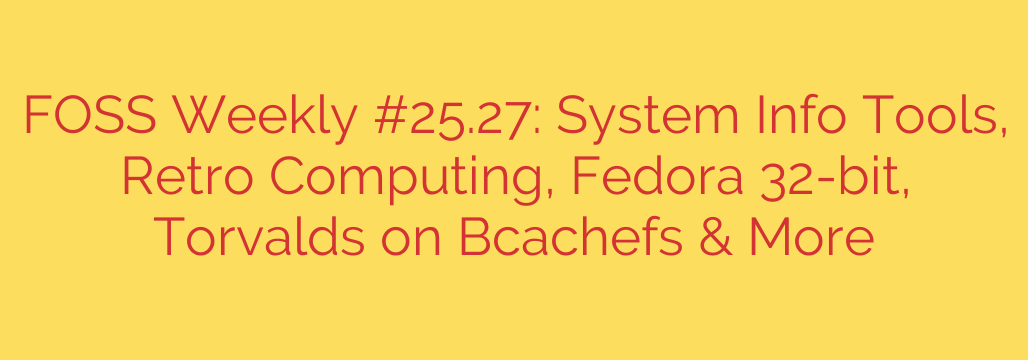
Delving into the latest developments across the open source landscape reveals significant points of interest for enthusiasts and professionals alike. Staying informed on the tools that provide deep insights into your system’s configuration is crucial, and several system information utilities continue to evolve, offering detailed overviews of hardware and software environments, essential for troubleshooting and optimization within Linux and FOSS ecosystems.
Meanwhile, the captivating world of retro computing continues its resurgence, heavily supported by open source projects that enable faithful emulation of classic systems or provide modern Linux distributions tailored for vintage hardware. This vibrant niche showcases the flexibility and enduring appeal of FOSS principles applied to preserving computing history.
A notable discussion point revolves around distribution-specific decisions, such as the status of Fedora concerning 32-bit architectures. The ongoing shifts and decisions around support for older architectures impact a segment of the user base and reflect broader trends in hardware and software development within the Linux community.
Adding to the technical discourse, insights from prominent figures always command attention. Recent commentary from Linus Torvalds regarding the Bcachefs filesystem has provided valuable perspective on its potential inclusion in the Linux kernel. His views, often reflecting a pragmatic approach to stability and readiness, are pivotal in the complex process of integrating new technologies into the core of the operating system. These developments highlight the continuous innovation and rigorous evaluation that define the open source world.
Source: https://itsfoss.com/newsletter/foss-weekly-25-27/








